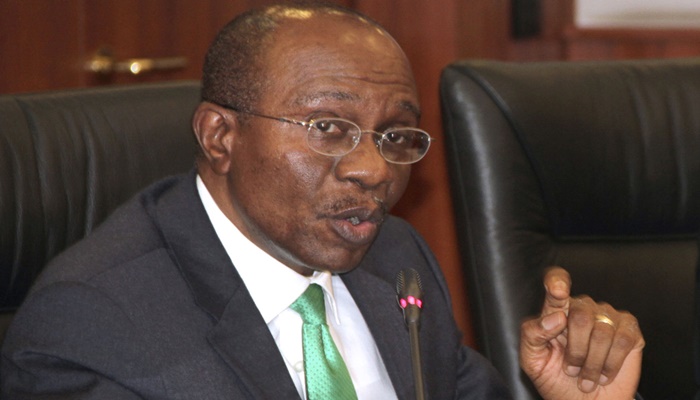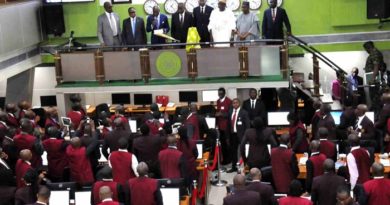CBN promises single-digit inflation rate 2018
The Central Bank of Nigeria (CBN) said it is on course to realise its target of bringing the country’s inflation rate down to single digits by next year
The CBN Governor, Mr. Godwin Emefiele said on Tuesday at the end of the two-day Monetary Policy Committee (MPC) meeting in Abuja, said that the bank was working hard, with the support of other important monetary and fiscal policy authorities to bring it down to single digits.
“When we talked about exiting recession in the second quarter of this year, many people did not believe. We are optimistic that our forecast to hit single digits by next year will come to pass,” he said.
He acknowledged the forecast was a long journey, the CBN governor said “with tenacity, lots of work, aggression and commitment by policy makers (monetary, fiscal and trade), we will get there and in a short time.”
He added: “As policy makers, we cannot rest on our oars. We need to remain focused. For a country that grows her population by an average of three per cent, nothing short of going back to the historical levels of about six per cent would be considered good”.
Part of efforts to create the environment for the economy to thrive and return to the path of sustained growth, he pointed out, was government’s determination to build and provide infrastructure to promote investment.
He confirmed the $3 billion dual-tranche bond issue announced on Monday by the Federal Government was part of the recent $5.5 billion loan request by President Muhammadu Buhari, approved last week by the National Assembly for infrastructure development.
Although the bond issue was over-subscribed by over $11 billion, the CBN governor said government was only able to access $3 billion under the Global Medium Term Note programme, comprising $1.5 billion 10-year and $1.5 billion 30-year series.
Emefiele said the 10-year series, which would attract a 6.5 per cent interest rate per annum, and the 30-year series at 7.625 per cent interest rate, would be deployed for key infrastructural development projects.
Despite concerns expressed by some Nigerians that more borrowing was increasing the country’s debt profile, the CBN governor insisted there was nothing wrong in borrowing to develop infrastructure.
“The important thing is how the funds borrowed are being deployed. We are happy the specific reasons for these borrowings are targeted at infrastructural development, like road development and construction, railway lines, airports and other projects to spur economic activities and ultimately accelerate the country’s growth trajectory,” he noted.
He described the over-subscription of the bond issue as a strong mark of increased investor confidence in the Nigerian economy and what government was doing, based on most of the macro-economic indices, supported by the decisions of the monetary and fiscal authorities.
“The MPC is delighted that the level of confidence has improved. The activities of the monetary and fiscal authorities have resulted in the country exiting recession earlier than anticipated,” he said.
On the plan to transfer ownership of former Etisalat Nigeria to new investors, 9Mobile, the CBN governor said the process, which meant to save the interest of 19 million subscribers, was still on track, as parties were determined to complete the sale before December 31, 2017.
He denied the reported withdrawal of Barclays Bank from the deal, pointing out that the UK bank was hired formally with a letter and would be expected to also follow due process of a formal letter, ”if it wanted to withdraw.”
“For now, there is no letter from Barclays Bank that it is withdrawing. The banks and other regulators, Huawei, AHS, Nokia, and others are holding meetings to see the amicable transfer of ownership to new owners by December 31, 2017. No cause for alarm. Everything on course,” he said.
Emefiele said the MPC resolved to retain all benchmark monetary policy rates at levels attained since July 2016.
The Monetary Policy Rate, MPR, which sets the lending rate for banks and businesses for a period, was left at 14 per cent.
Equally, the Cash Reserve Ratio, CRR, which establishes the specified minimum fraction of customers’ total deposits commercial banks could hold as reserves either in cash or deposits with the CBN, was kept 22.5 per cent.
The liquidity ratio was left by the MPC at 30 per cent, with the symmetric window kept at +200 and -500 basis points around the MPR.
It would be recalled that the National Bureau of Statistics (NBS) said in its latest Consumer Price Index (CPI) Report for October said that average headline monthly inflation rate for the next five months of the year (June to October 2017) stood at 1.06 per cent.
The report said the yearly rate was 0.07 per cent points lower, from 15.98 per cent in September to 15.91 per cent in October 2017.




